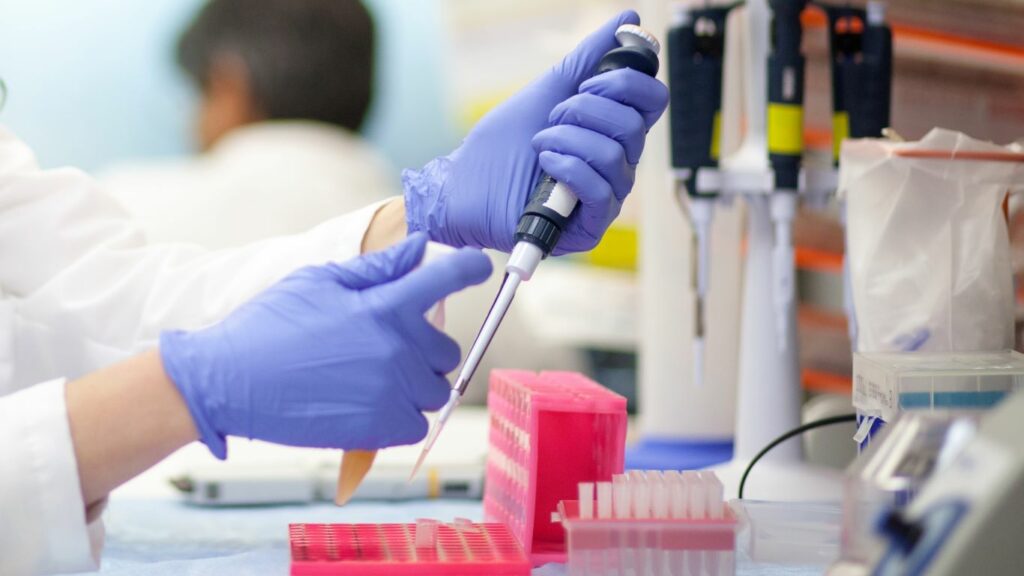Bones stay healthy thanks to being in continuous remodeling, a continuous process that occurs due to the balance between the activity of osteoblasts – cells that generate bone tissue, and osteoclasts, who reabsorb it. An imbalance between these two activities can disrupt bone homeostasis and produce diseases such as osteopenia.
The Cell Signaling and Bone Biology research group of the Bellvitge Biomedical Research Institute (IDIBELL) and the University of Barcelona (UB) has carried out a study in mice that shows the first evidence of HERC1’s role in bone homeostasis and how its deficiency causes osteopenia, a decrease in bone mass. A HERC1 deficiency stimulates both the activity of osteoblasts and osteoclasts, which ends up favoring bone resorption rather than bone formation and leads to the development of osteopenia in adulthood.
Research also shows that, at young ages, HERC1-deficient females are more susceptible to developing osteopenia correlating with lower levels of the hormones testosterone and dihydrotestosterone.
RANKL and OPG are proteins synthesized by bone cells (osteoblasts and osteocytes) that oppositely regulate the differentiation and activation of osteoclasts. During the development of osteopenia due to HERC1 deficiency, an increase in the RANKL/OPG ratio and the number of osteoclasts is observed. These results identify RANKL as a potential therapeutic target for individuals with bone involvement and HERC1 deficiency.
Dr. Jose Luis Rosa, group leader at IDIBELL and professor at the UB Faculty of Medicine and Health Sciences, who coordinates the study, adds that “early detection of HERC1 variants with loss of function could identify individuals with predisposition to develop osteopenia and other pathologies related to bone metabolism, which could improve their treatment and medical evolution”.
The Bellvitge Biomedical Research Institute (IDIBELL) is a biomedical research center created in 2004. It is participated by the Bellvitge University Hospital and the Viladecans Hospital of the Catalan Institute of Health, the Catalan Institute of Oncology, the University of Barcelona and the City Council of L’Hospitalet de Llobregat.
IDIBELL is a member of the Campus of International Excellence of the University of Barcelona HUBc and is part of the CERCA institution of the Generalitat de Catalunya. In 2009 it became one of the first five Spanish research centers accredited as a health research institute by the Carlos III Health Institute. In addition, it is part of the “HR Excellence in Research” program of the European Union and is a member of EATRIS and REGIC. Since 2018, IDIBELL has been an Accredited Center of the AECC Scientific Foundation (FCAECC).

